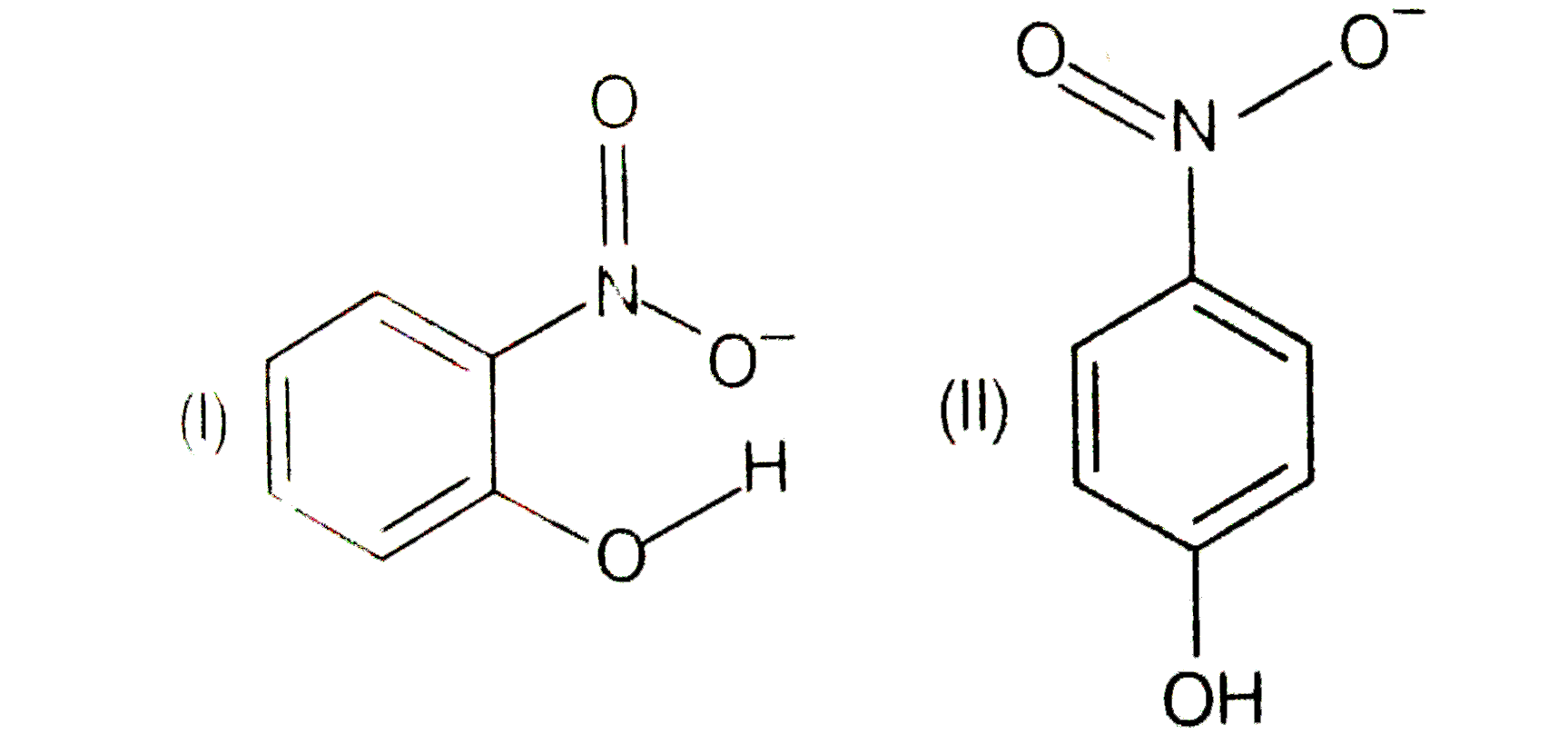Does the presence of intermolecular hydrogen bonding affect the boiling point of a liquid?
Step-by-Step Solution:
1. Understanding Intermolecular Hydrogen Bonding:
- Intermolecular hydrogen bonding occurs between molecules that have hydrogen attached to highly electronegative atoms like nitrogen, oxygen, or fluorine. This creates a polar bond, leading to partial positive and negative charges.
2. Example of Hydrogen Bonding:
- Consider the example of hydrogen fluoride (HF) dissolved in water. Both HF and water are polar molecules. In HF, hydrogen has a partial positive charge, while fluorine has a partial negative charge. In water, oxygen has a partial negative charge, and the hydrogen atoms have partial positive charges.
3. Formation of Hydrogen Bonds:
- When HF is mixed with water, hydrogen bonds form between the hydrogen of HF and the oxygen of water. This interaction is a strong intermolecular force that affects the physical properties of the substances involved.
4. Impact on Boiling Point:
- The boiling point of a liquid is the temperature at which its vapor pressure equals atmospheric pressure. Strong intermolecular forces, such as hydrogen bonding, require more energy to overcome. Therefore, if a liquid has strong hydrogen bonding, it will have a higher boiling point because more energy (in the form of heat) is needed to break these bonds.
5. Comparison with Other Molecules:
- In contrast, if a molecule does not engage in significant hydrogen bonding with water (or another solvent), it will have weaker intermolecular forces and thus a lower boiling point.
6. Conclusion:
- In summary, the presence of intermolecular hydrogen bonding does indeed affect the boiling point of a liquid. More hydrogen bonding leads to stronger intermolecular forces, resulting in a higher boiling point.
---
- Intermolecular hydrogen bonding occurs between molecules that have hydrogen attached to highly electronegative atoms like nitrogen, oxygen, or fluorine. This creates a polar bond, leading to partial positive and negative charges.
- Consider the example of hydrogen fluoride (HF) dissolved in water. Both HF and water are polar molecules. In HF, hydrogen has a partial positive charge, while fluorine has a partial negative charge. In water, oxygen has a partial negative charge, and the hydrogen atoms have partial positive charges.
- When HF is mixed with water, hydrogen bonds form between the hydrogen of HF and the oxygen of water. This interaction is a strong intermolecular force that affects the physical properties of the substances involved.
- The boiling point of a liquid is the temperature at which its vapor pressure equals atmospheric pressure. Strong intermolecular forces, such as hydrogen bonding, require more energy to overcome. Therefore, if a liquid has strong hydrogen bonding, it will have a higher boiling point because more energy (in the form of heat) is needed to break these bonds.
- In contrast, if a molecule does not engage in significant hydrogen bonding with water (or another solvent), it will have weaker intermolecular forces and thus a lower boiling point.
- In summary, the presence of intermolecular hydrogen bonding does indeed affect the boiling point of a liquid. More hydrogen bonding leads to stronger intermolecular forces, resulting in a higher boiling point.
Topper's Solved these Questions
- CHEMICAL BONDING AND MOLECULAR STRUCTUREBOOK - ICSECHAPTER - CHEMICAL BONDING AND MOLECULAR STRUCTUREEXERCISE - SHORT ANSWER TYPE QUESTIONS
76 Videos
- CHEMICAL BONDING AND MOLECULAR STRUCTUREBOOK - ICSECHAPTER - CHEMICAL BONDING AND MOLECULAR STRUCTUREEXERCISE - ESSAY (LONG ANSWER ) TYPE QUESTIONS
45 Videos
- CHEMICAL BONDING AND MOLECULAR STRUCTUREBOOK - ICSECHAPTER - CHEMICAL BONDING AND MOLECULAR STRUCTUREEXERCISE - REVIEW EXERCISES
163 Videos
- CHEMICAL THERMODYNAMICS BOOK - ICSECHAPTER - CHEMICAL THERMODYNAMICS EXERCISE - NCERT TEXT-BOOK. EXERCISES
22 Videos
Similar Questions
Knowledge Check
Intermolecular hydrogen bonding is strongest in :
AmethylamineBphenolCformaldehydeDmethanolIntermolecular hydrogen bonds are not present in ?
ACH3COOHBC2H5NH2CCH3CH2OHDCH3OCH3
Explain what do you know about the boiling point of a liquid.
View SolutionStructures of molecules of two compounds are given below.

a) Which of the two compounds will have intermolecular hydrogen bonding and which compound is expected to show intramolecular hydrogen bonding?
b) The melting point of compound depends on, among other things, the extent of hydrogen bonding. On this basis explain which of the above two compounds will show higher melting point?
c) Solubility of compounds in water depends on powers to form hydrogen bonds with water. Which of the above compounds will form hydrogen bond with easily and be more stable in it?
View SolutionHydrogen bonding does not play role in the boiling point of :
View SolutionIn which of the following there is intermolecular hydrogen bonding ?
View SolutionIn which of the following there is intermolecular hydrogen bonding ?
View SolutionWhat is the effect of pressure on the boiling point of a liquid ?
View Solution
